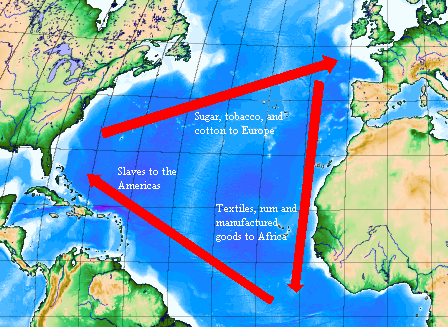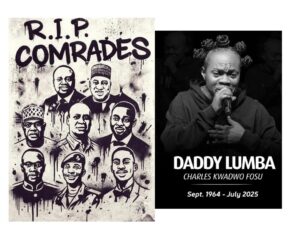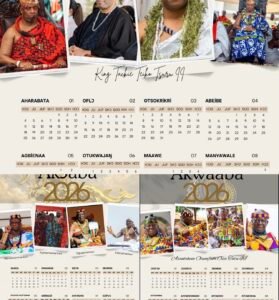
Boris Kodjoe is a notable person with an Akan-diaspora name. Photo Credit:Broadimage/Shutterstock (10521623e) Boris Kodjoe ABC TCA Winter Press Tour, Arrivals, Los Angeles, USA - 08 Jan 2020
Akan names, like Kofi, Kodwo, Kwaku, Kwamena, have traveled far from their origins in West Africa to the Americas and the Caribbean through the history of the transatlantic slave trade. Over time, many of these names were changed or Anglicized, becoming names like Cuffee or Cuffey. These changes often reflected the cultural blending and adaptation that took place in the diaspora. In this article, I explored the original Akan names, their meanings/etymology, and how they evolved over time in an attempt to reconnect with the rich heritage behind these names and celebrate the enduring legacy of Akan culture back home and the diaspora.

Licensed under CC BY-SA 2.0, GFDL-WITH-DISCLAIMERS, and CC BY-SA 3.0.
The transatlantic slave trade was one of the darkest periods in history, where millions of Africans were taken from their homes and forced to work as slaves in the Americas and the Caribbean. Among these people were the Akan, a group from modern-day Ghana and Côte d’Ivoire, who carried their language, culture, and names with them. As they were sold into slavery and transported across the ocean, their identities were often stripped away. However, their names remained a connection to their roots. Over time, these names adapted to the new environments, influenced by the languages and cultures of their enslavers.
Agyekum (2006) is of the view that Akans have eight various typologies of names. Some of these are:
- Birthday names
- Family names
- Circumstantial names
- Flora and fauna and physical structure names
- Theophoric names
- Honorific and Title names
- Insinuating, proverbial, insulting and nicknames
- Gang, play and occupational names
Among these names, the most common are the ‘birthday names.’ These names are popular because they are based on the day a person is born, making them easy to predict. In Akan culture, every day of the week has a specific name for both males and females. This means that Akans have distinct names for boys and girls depending on the day they were born.
These names have traveled from their original Akan roots to the diaspora and, over time, developed various forms. Interestingly, it is the masculine names that have been widely used and adapted in the diaspora, often appearing in different variants. On the other hand, the feminine names are rarely heard, and the reason for this remains a mystery.
The first Akan name that journeyed and evolved over time is ‘Kwaku/Kweku.’ Etymologically, the name has deep roots in the Akan language. The prefix ‘nkwa’ means “life,” or alternatively, ‘kwa’ can mean “forest/free.” The suffix ‘-ku’ comes from the Akan word for Wednesday, ‘Wukuda/Wukuada,’ which refers to the day of the week. Together, the name ‘Kwaku’ translates to “a Wednesday-born male filled with life.” The names ‘Kweku/Kwaku’ has gained in the diaspora, we find several variations that have evolved over time. Some of these include ‘Quarco/Quarcoo/Quaco/Quack/Quock/Quaco and Quacoo among others.
The next name is ‘Kofi.’ Etymologically, ‘Kofi’ also originates from ‘nkwa,’ meaning “life,” or ‘kwa,’ meaning “forest/free.” Additionally, ‘fi’ is derived from the Akan name for Friday, ‘Fida/Fiada.’ Interestingly, the name should have been spelled as ‘Kwafi,’ but it underwent phonological changes over time, resulting in the familiar ‘Kofi.’ The name translates to “a Friday-born male filled with life.” In the diaspora, ‘Kofi’ has developed into various forms such as Cuffey, Cuffee, Coffee, and others.

Next, we have ‘Kwadwo/Kodwo.’ Etymologically, ‘Kwadwo/Kodwo’ also comes from ‘nkwa,’ meaning “life,” or ‘kwa,’ meaning “forest/free.” The suffix ‘dwo’ is derived from the Akan name for Monday, ‘Dwowda/Dwoada,’ where ‘dwo/dwow’ means “cool” or “calm.” Thus, the name translates to “a Monday-born male filled with calmness.” In the diaspora, ‘Kwadwo/Kodwo’ has transformed into names like ‘Cudjo, Cudjoe, and ‘Kodjoe.’ A well-known example of this is Boris Kodjoe, a popular German-Austrian actor with Ghanaian roots.
Another name is ‘Kwamena,’ which is a typical Fante name for a male born on Saturday. Etymologically, ‘Kwamena’ is derived from the Akan word for Saturday, ‘Memeneda,’ combined with ‘kwa’ meaning “free,” or ‘nkwa’ meaning “life,” or ‘kwa’ meaning “forest.” In the diaspora, ‘Kwamena’ has developed into various forms, including ‘Kwamina’ and ‘Quameno.’
There is also ‘Kwasi/Kwesi,’ the name for a male born on Sunday in Akan. ‘Kwasi/Kwesi’ is derived from ‘nkwa,’ meaning “life,” or ‘kwa,’ meaning “forest” or “free,” combined with ‘si’ from ‘Kwesida/Kwesiada,’ which means “Sunday.” In the diaspora, ‘Kwesi/Kwasi’ has transformed into several variations, such as ‘Quarshie,’ ‘Kwashey,’ ‘Quash,’ and ‘Quashie.’
Aside from the popular day names, there are also other Akan names that have traveled and evolved over time. For example, ‘Manu,’ which refers to a fifth-born child in Akan, comes from ‘mba/mma anum/enum,’ meaning “fifth child.” In the diaspora, this name has been transformed and Anglicized as ‘Minor.’ Another example is ‘Mensah,’ a name for a third-born child, derived from ‘mba/mma ebiasa/mmiɛnsa,’ meaning “third child.” In the diaspora, ‘Mensah’ has evolved into the form ‘Minisee.’
The journey of Akan names from their original roots in West Africa to the Americas and the Caribbean is a testament to the resilience and adaptability of culture. As these names traveled across oceans, they underwent changes, often influenced by language and societal shifts in the diaspora. From day names like Kofi and Kwaku to family names like Mensah and Manu, the evolution of these names reflects the merging of cultures, histories, and identities. Though many of these names have taken on new forms, they still carry the meanings and heritage of their Akan origins.
Editor: Ama Gyesiwaa Quansah







